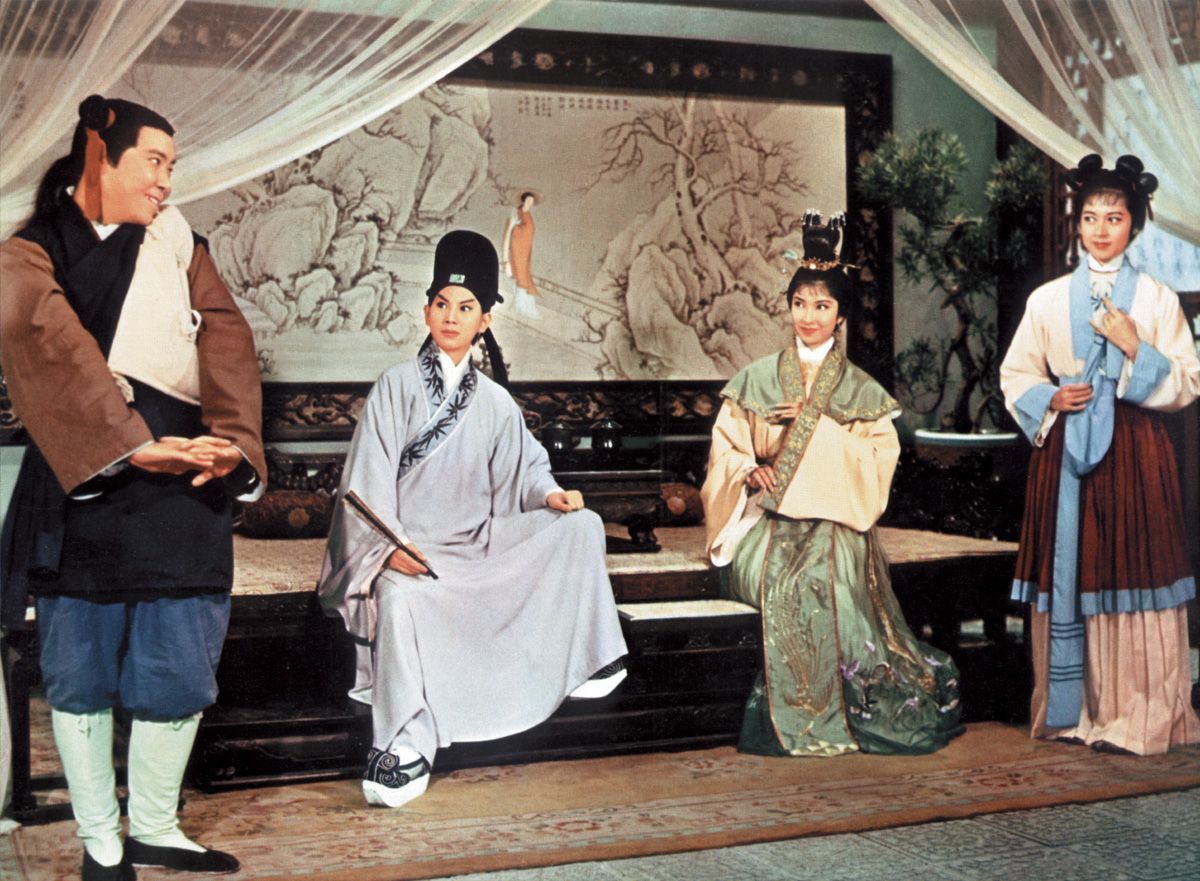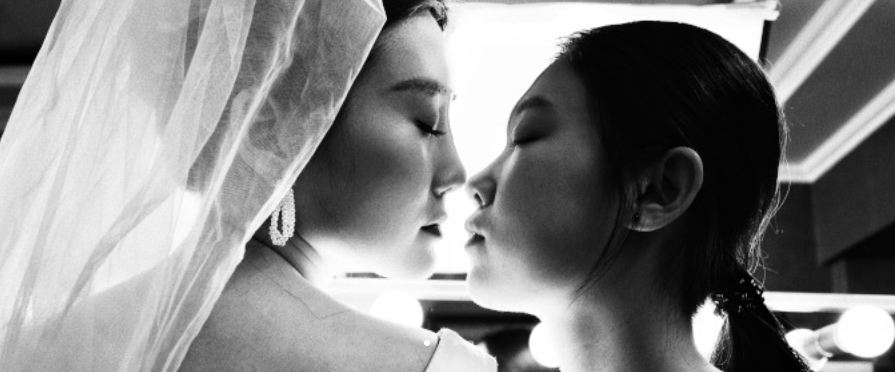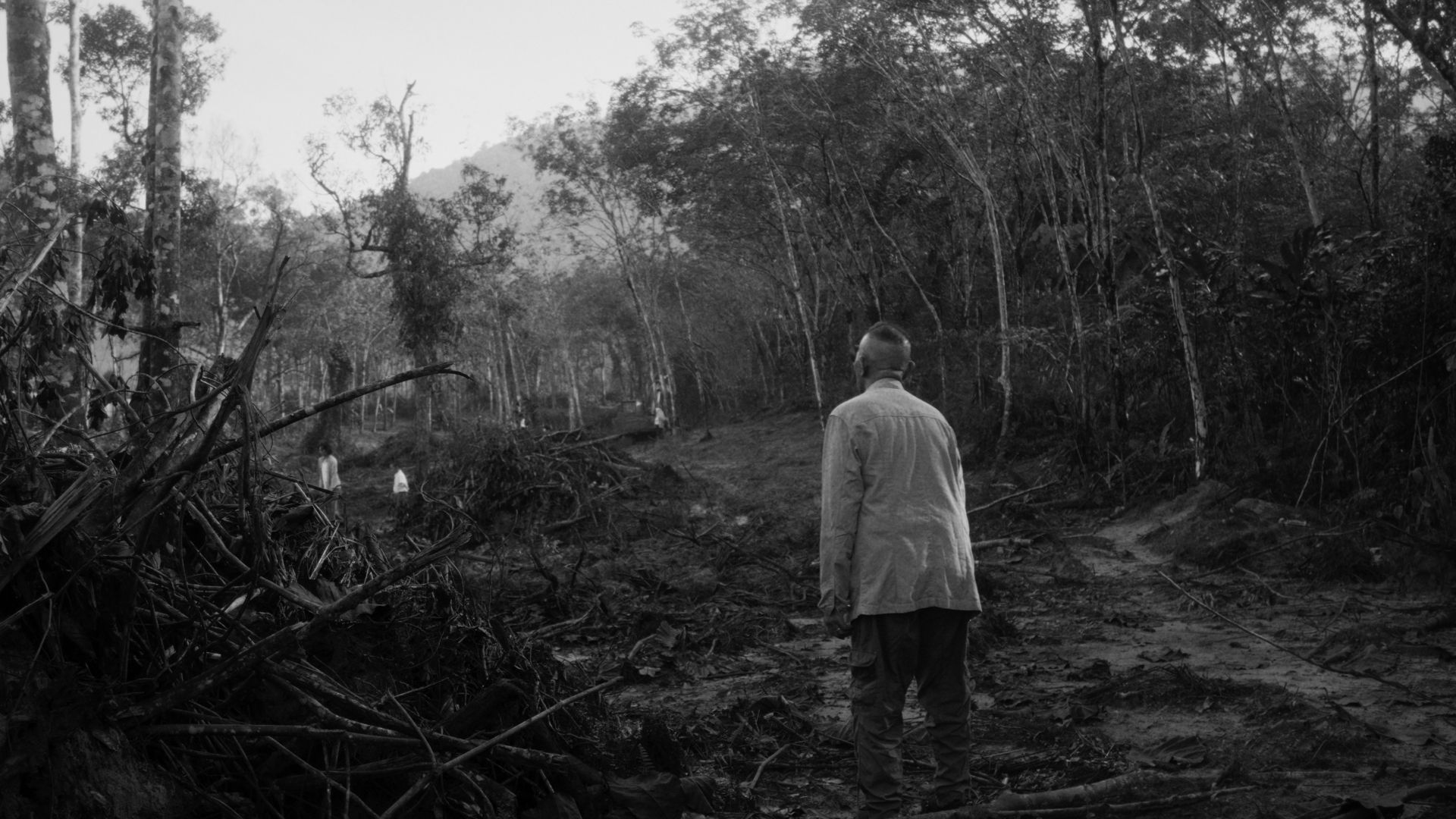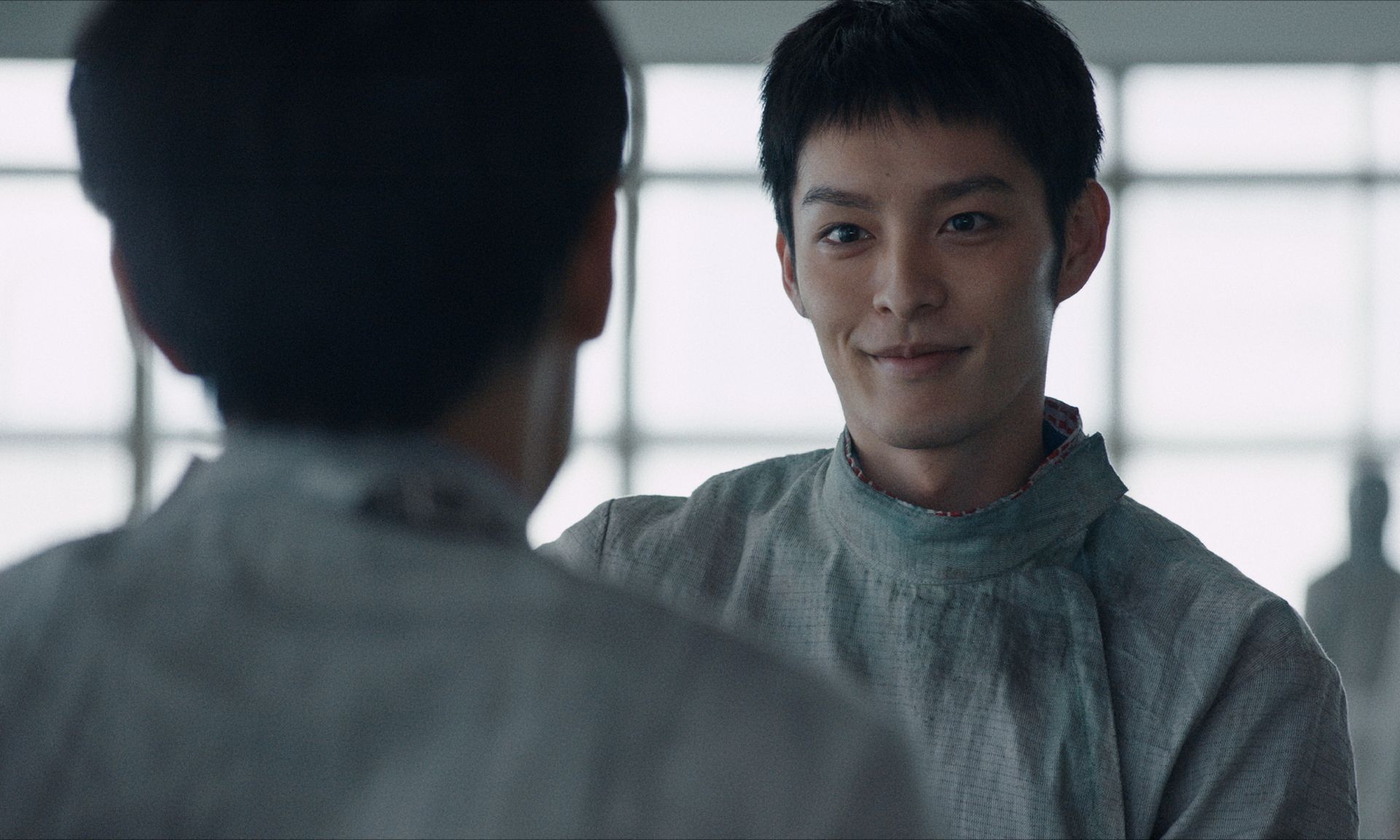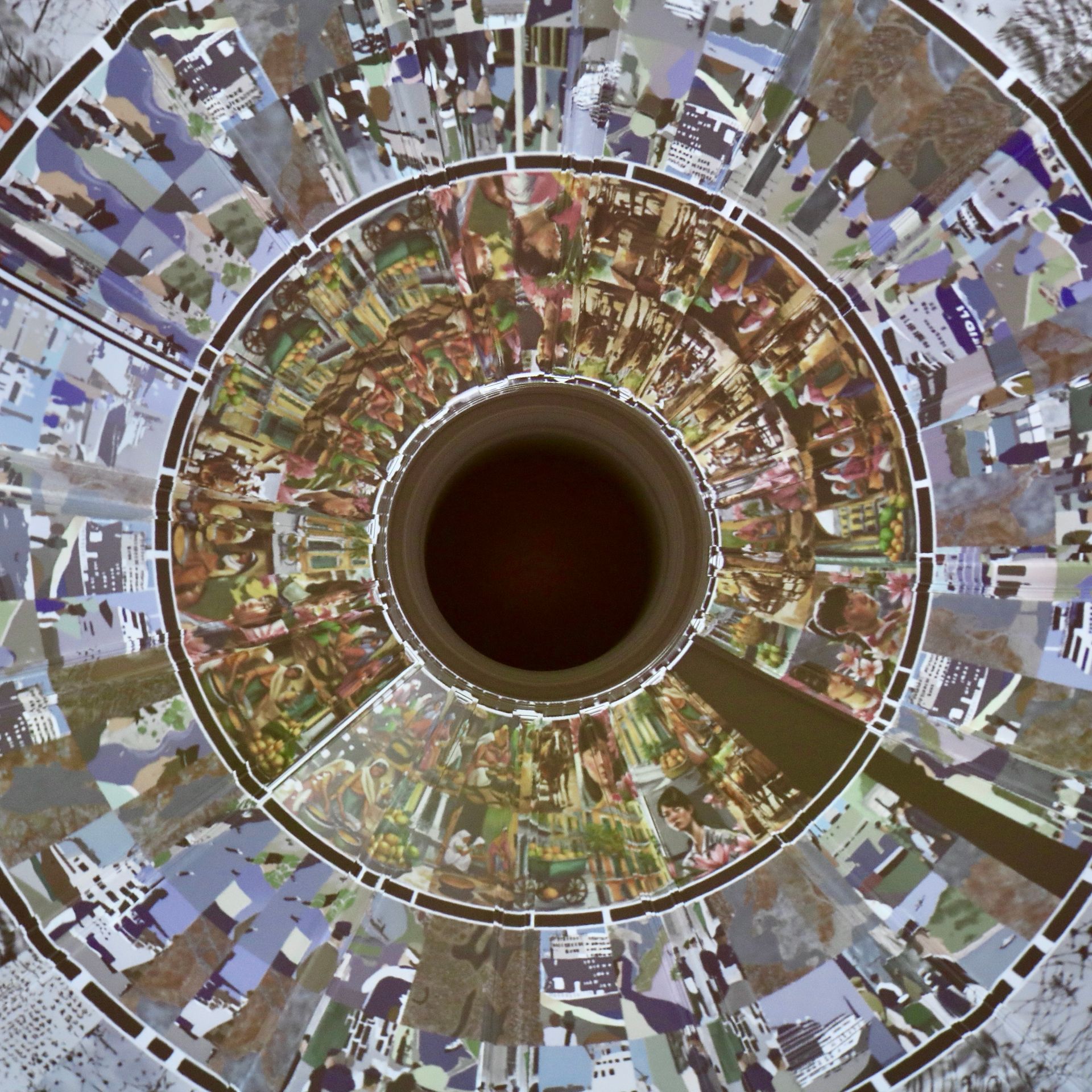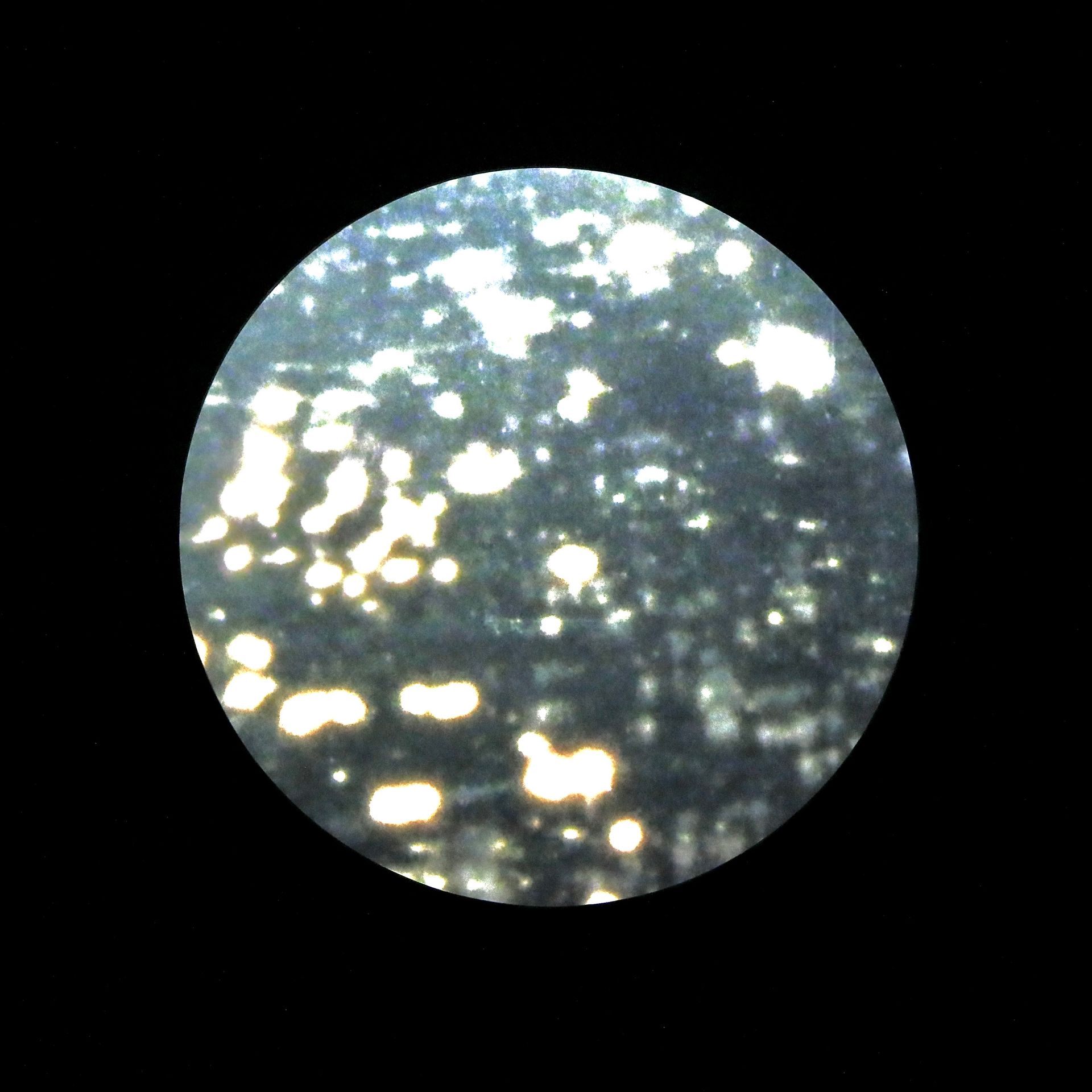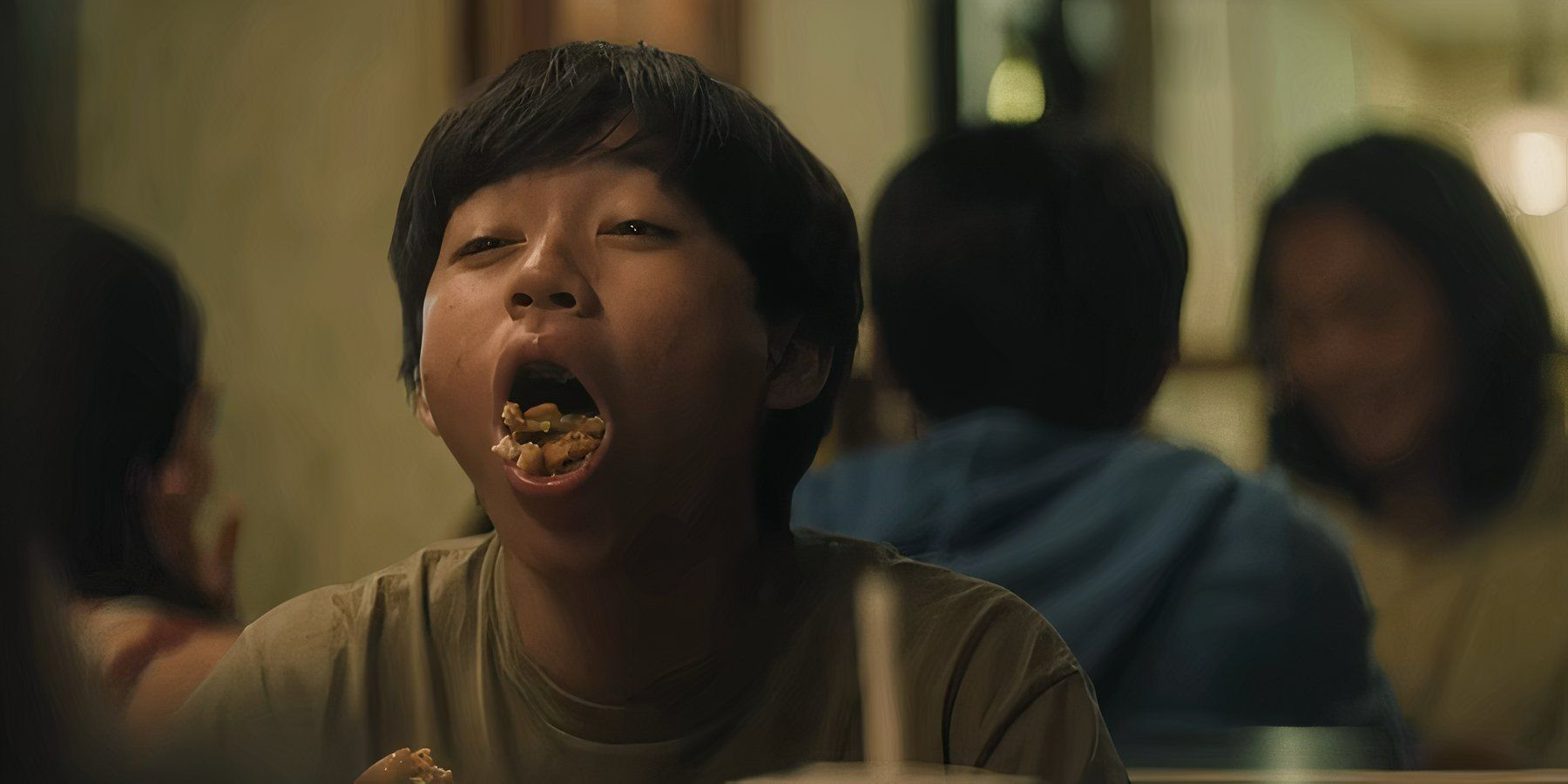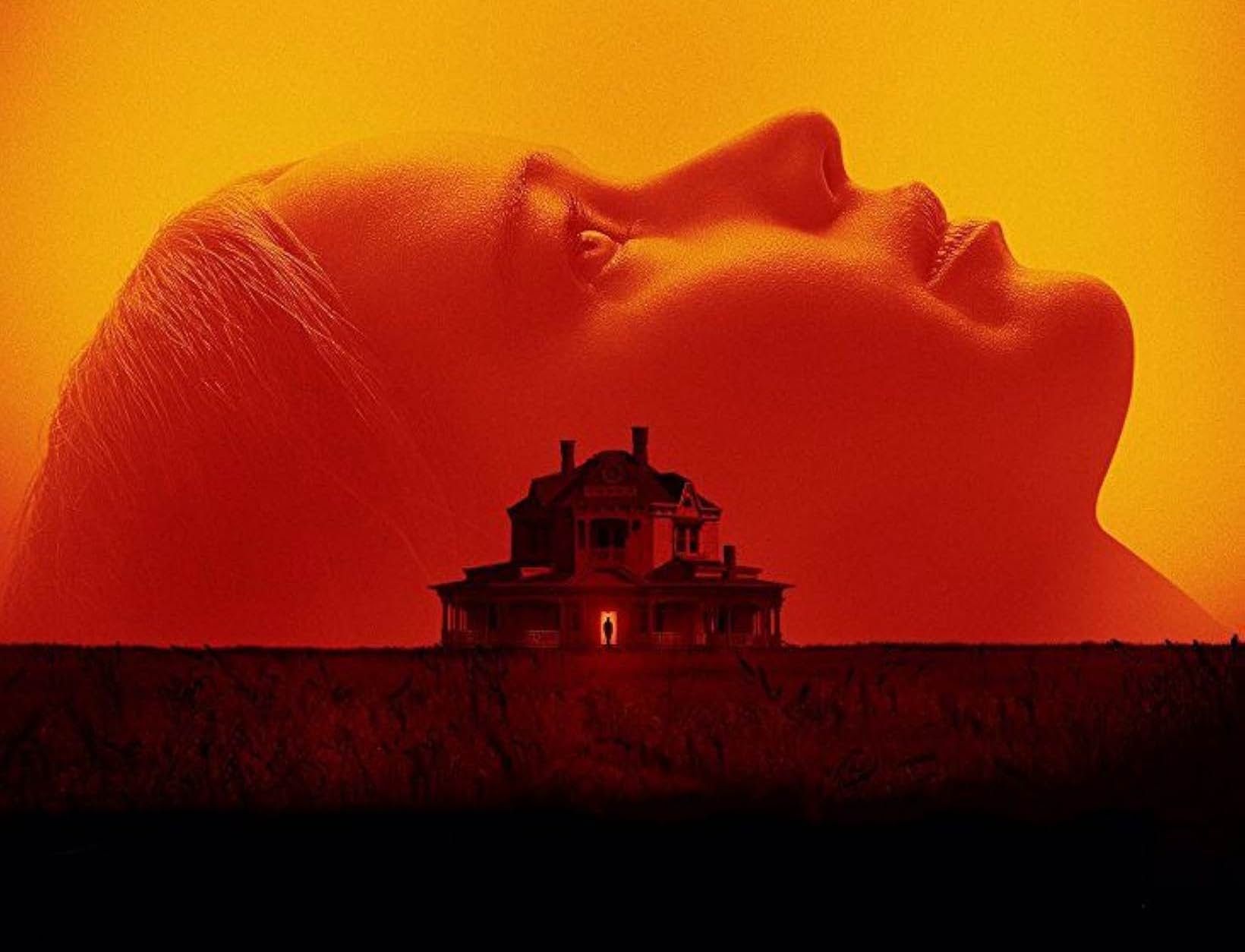(SCFF) Film Review #50: 梁山伯与祝英台 THE LOVE ETERNE [Screening 7 May, 1pm]
Singapore Chinese Film Festival 2023
Film Review #50:
梁山伯与祝英台 THE LOVE ETERNE
*This film review may contain plot spoilers, reader discretion is advised.*
*本篇影评含雷,请斟酌阅读。*
It’s not often one gets to share what he genuinely regards as one of the best Chinese films ever made, and one that I personally adore. 1963’s The Love Eterne left a firm and succinct imprint on the audience of its time, and in turn it has maintained a legacy as one of the great “Chinese” films. To the generation that experienced its sheer popularity at the time, it was one of those films that was just simply everywhere, a film that everyone saw and knew by heart. Tales of people greeting the main lead and constantly rewatching the movie in theaters with an almost feverish vigor are still reminisced today by those that were a part of it. It weaved itself into the cultural fabric of the Sinosphere, and achieved a sort of “omnipresence” that didn’t just mark it as a cinematic touchstone, but a cultural one.
Film Still from The Love Eterne (1963)
Indeed, that was how I was introduced to the film a few years ago; I was going through a TV schedule of classic films with my grandmother, and The Love Eterne was on the lineup. The mention of that film immediately perked her up with remembrance, and she relayed much of the legends that I described above to me. However, I would be remiss if I simply used the film’s legacy as the sole reason to push others to watch it. This review then will begin with providing some contextual explanations to the culture and production surrounding the film before diving into the film itself, and perhaps this would help explain to a wider audience just what made it so popular at the time.
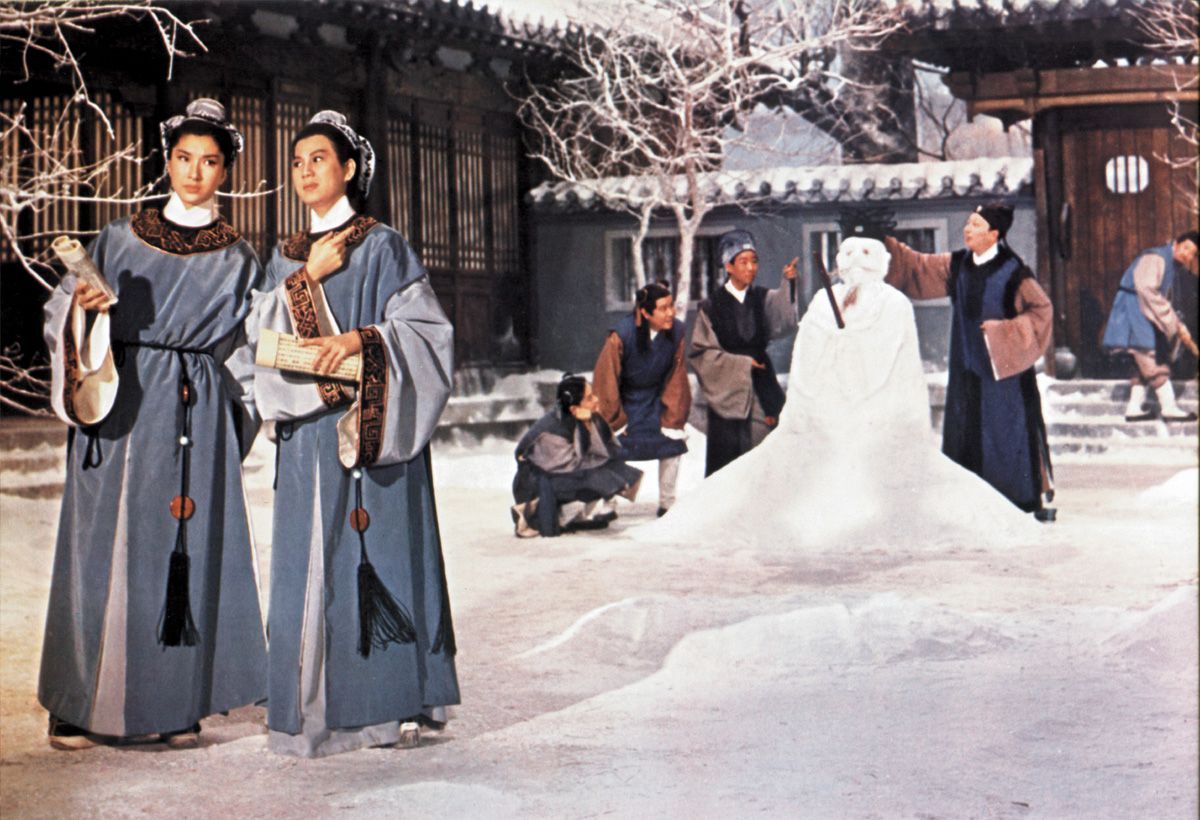
Film Still from The Love Eterne (1963)
The Love Eterne is a musical adaptation of the classic Chinese folktale, “The Butterfly Lovers”. Zhu Ying-tai, played by Betty Loh Ti, is a girl that wishes to pursue an education, to the consternation of her parents, in an age only males are allowed in schools. She is able to eventually convince them, and is allowed to head out and study in disguise as a man. En route, she meets another school-bound youth, Liang Shan-po, played by Ivy Ling Po. The two are almost destined to be together through their immediate chemistry and camaraderie with each other, and as they oblige themselves to be each other’s “sworn brother”, they begin a friendship which evolves into something much more rich, fruitful and sheerly romantic.
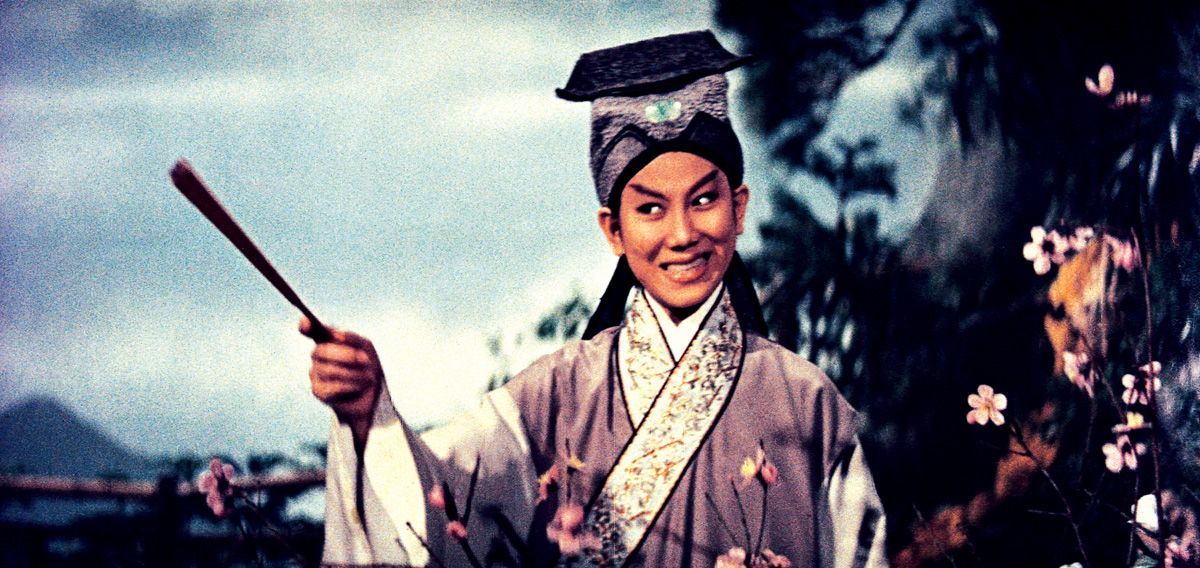
Film Still from The Love Eterne (1963)
With a film so entrenched in the culture that it was born from, both in terms of story and technique, there is much that could potentially be “lost” to an audience that is outside of said culture, an issue that I shall do my best to mitigate here. I shall start off on the more purely production side of things, as there is a significant amount of context there on its own that could potentially be missed. As mentioned above, the folktale itself is widely known and beloved, having been the inspiration for countless other literatures, operas, and musical compositions prior to this one. This film in turn is made in the style of a particular genre of traditional Chinese opera, known as Huángméi diào, or Huangmei opera, which implement repeating rhythmic melodies and wordplay in an almost “sing-song”-like manner. This style of “Huangmei opera film” was a staple of the Shaw Brothers’ output for a time, but it is generally uncontested that The Love Eterne is the best one that they ever made.
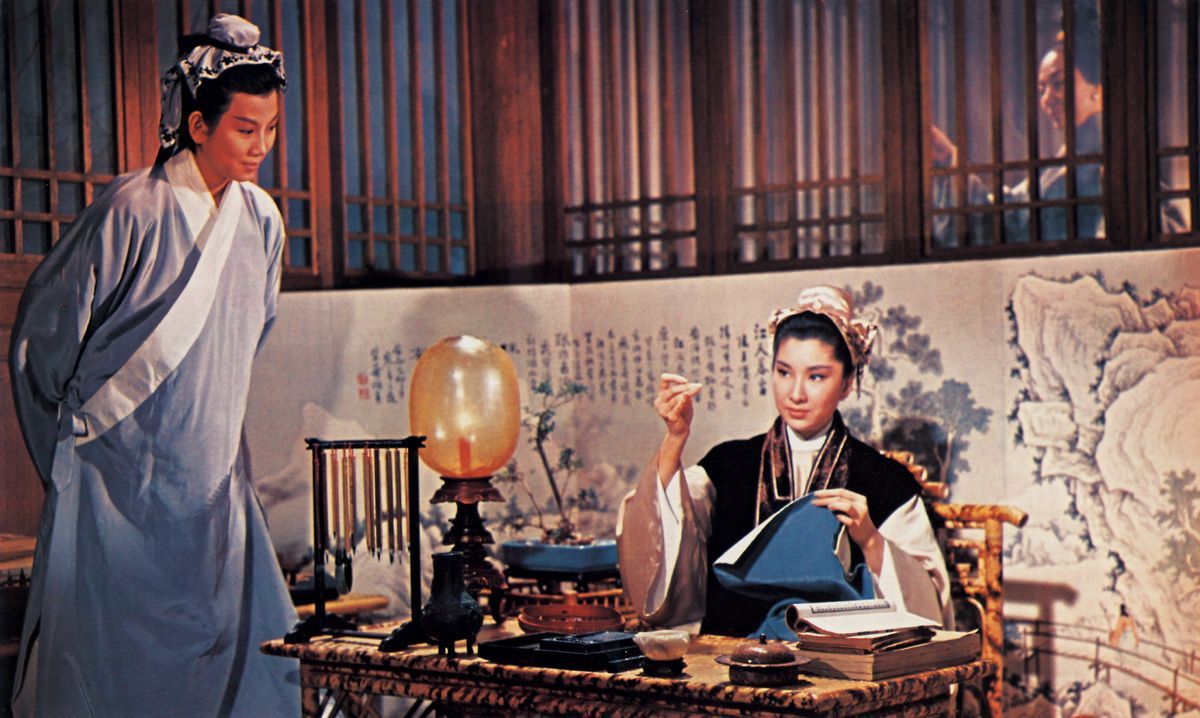
Film Still from The Love Eterne (1963)
Much more outwardly unique to a wider audience perhaps is the gender-blind casting of actress Ivy Ling Po, then a starlet little known in the mainstream Chinese cinema, as the male co-lead, Liang Shan-po; whilst cross-gender casting is not uncommon in traditional Chinese opera, this was the first time that Shaw had done so for a huangmei film, and the result was Ling Po achieving stardom practically overnight, with documented evidence of mountains of fans greeting her in Taipei, a cultural phenomenon that bordered on mass-hysteria. She would go on to establish herself as the male lead in future huangmei films, and has well maintained her position as a classic film star.
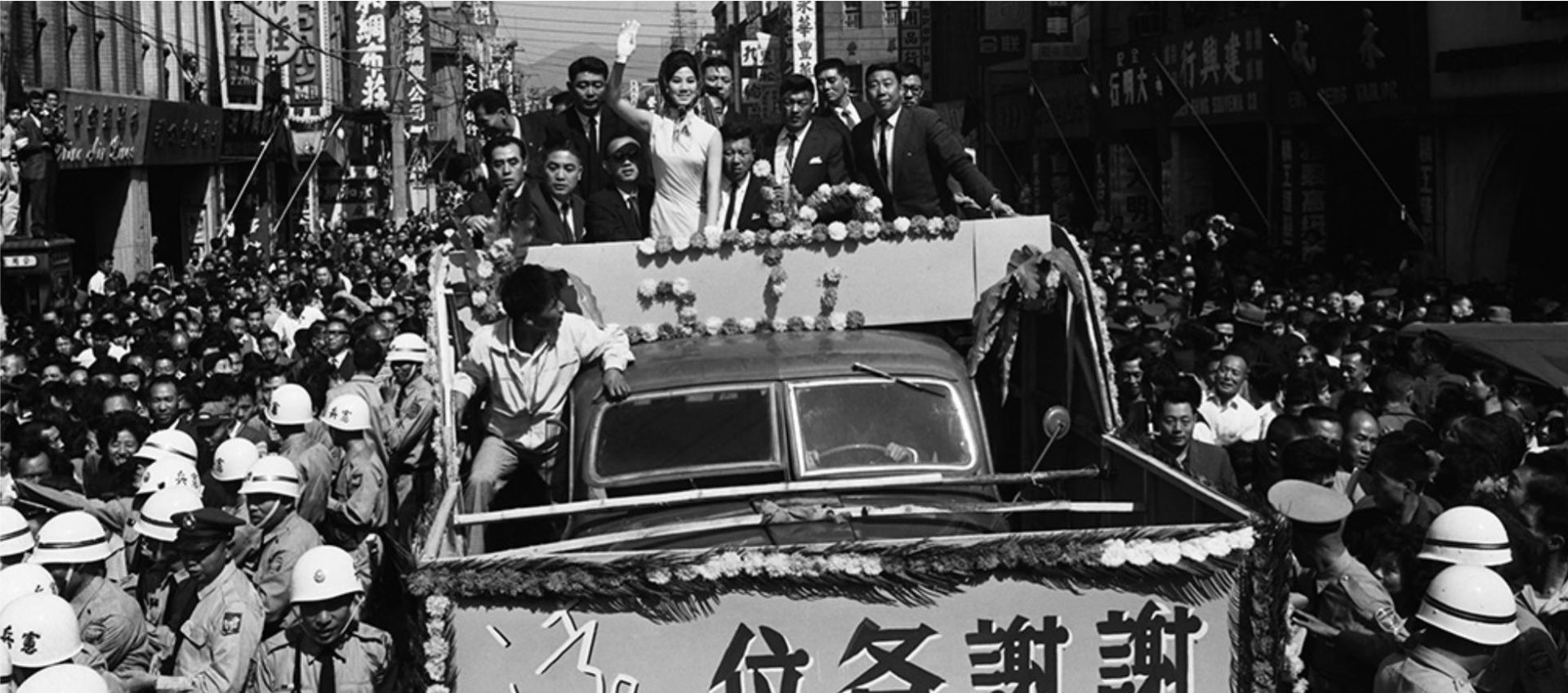
Photo credit: Taipei Golden Horse Film Festival Executive Committee)
We shall discuss the potential subtext one could analyze from her role in the film later on, but now talking about the film itself, one can potentially understand why there was such a frenzy for it. A major reason, perhaps the primary reason, for what made The Love Eterne the blockbuster it was was simply because that it was an expertly crafted film by one of Shaw’s leading directors, Li Han-Hsiang. The cinematography in particular must be given special attention to; the blocking and staging is all set up so that they always seem to be on a “horizontal plane”, calling back to the opera stage from which it is drawing so much inspiration from. The camera glides with the motions of the actors, and Han-Hsiang almost seemed to be able to pinpoint the exact move-in or tracking shot that would heighten the emotional effect of each scene, paired with static wide shots that allow the gorgeous production design to really shine. On a directorial angle alone, this is Li Han-Hsiang’s masterwork, both in personal opinion and wider consensus in terms of popularity.
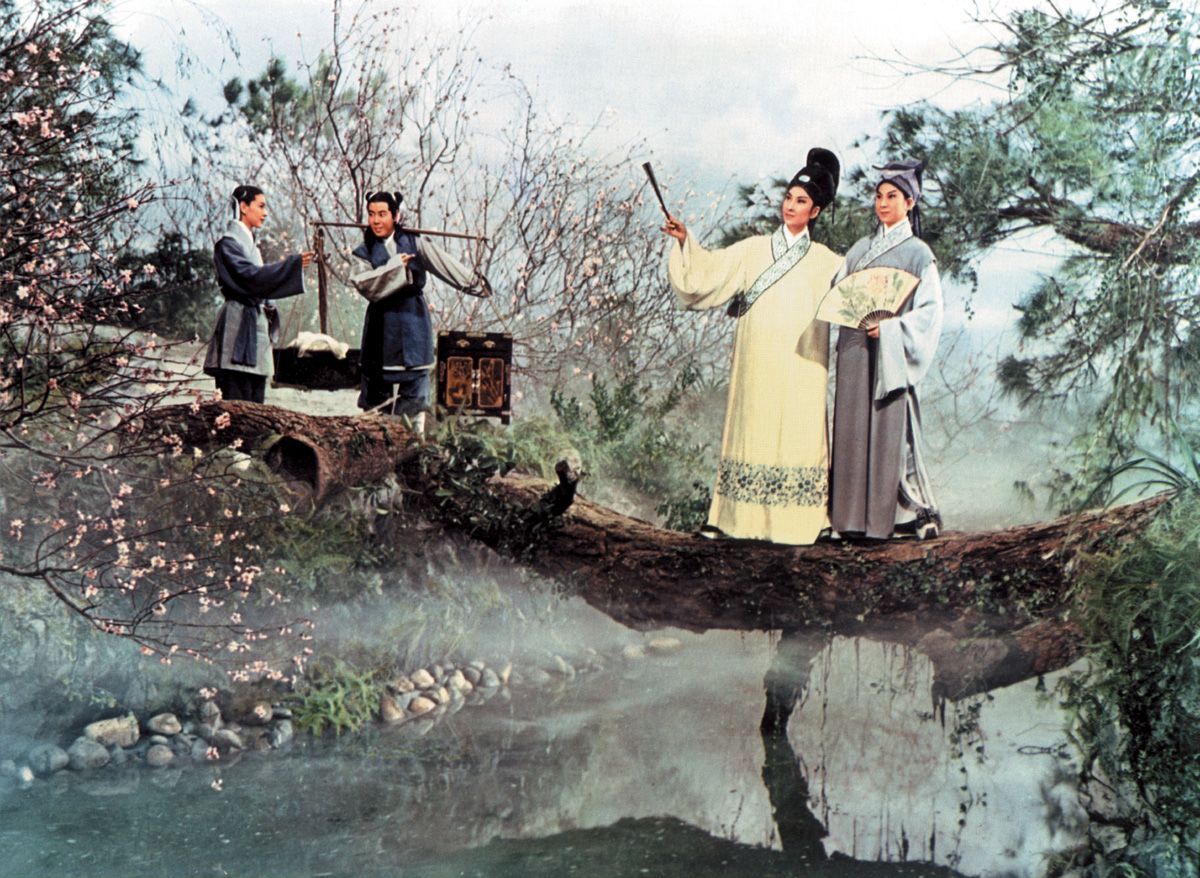
Film Still from The Love Eterne (1963)
But no amount of craftsmanship would be worth it if the story itself did not have any heft behind it, and
The Love Eterne
very much does. Ivy Ling Po and Betty Loh Ti have a very potent chemistry with each other, a positivity that simply exudes off the screen with a strong yet gentle power. The commitment to the traditions of stagecraft is present here too, with motions carefully choreographed and exaggerated as they converse and infer. All of this converges into a film that is unashamedly theatrical in its make, and in turn uses cinematic techniques to uplift the story being even further. This might not be the most detailed descriptor for it, but there just is a very specific type of “magic” to it, an energy that flutters and blossoms.
Not only that, but the themes that The Love Eterne touches on, either intentionally or otherwise, are quite strikingly progressive. Zhu Ying-tai is a girl that is thoroughly trapped by familial patriarchal systems, and the movie actually takes a very firm and loud stance against that, which for 1963 is quite notable. It is fiercely feminist in that regard, and with a story being about a woman who disguises herself as a man, as well as the main male lead being played by an actress, queer readings into this film are practically openly invited, even if that was never the intention of the original filmmakers. There is subtext both blatant and coincidental, but they ring as loud as even after 60 years on.
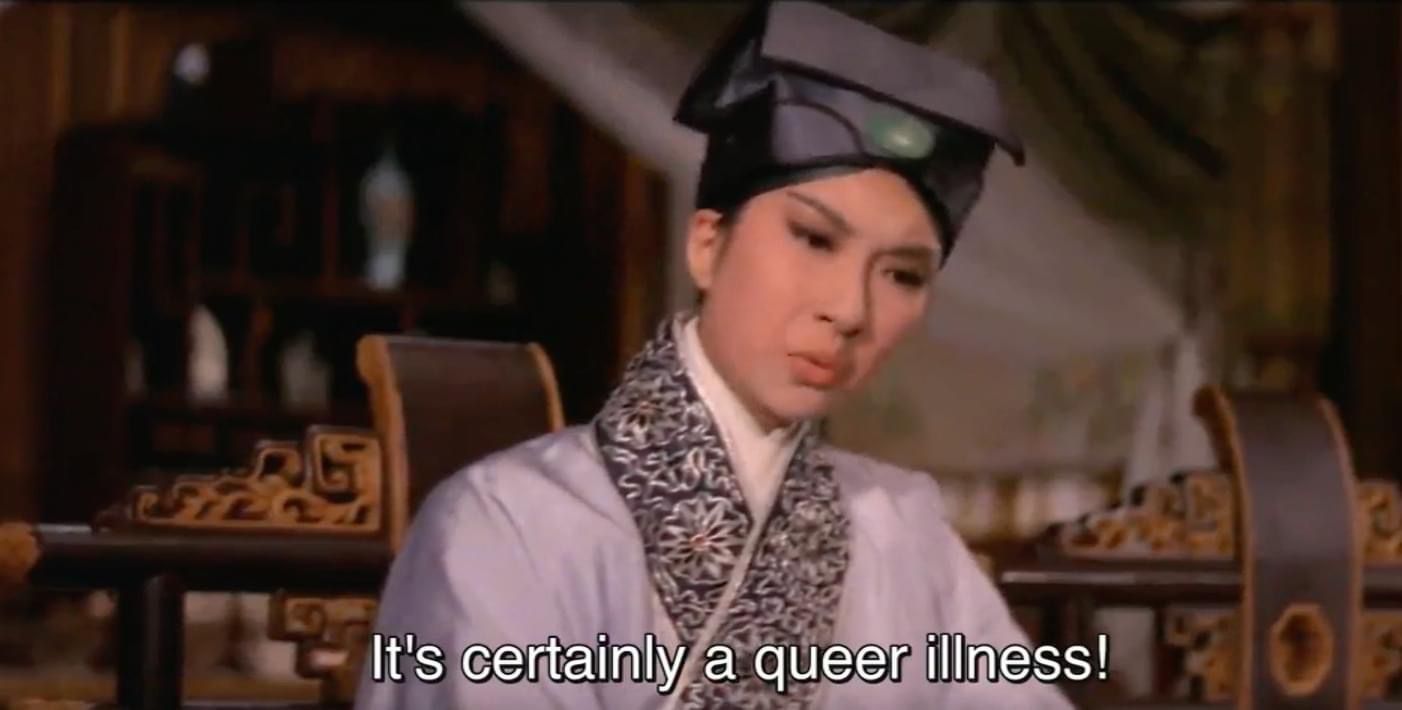
Film Still from The Love Eterne (1963)
The Love Eterne is not a “one of a kind” movie, but it’s certainly the best of its kind. It is the ultimate achievement of the Shaw Brothers’ studio system of filmmaking, a benchmark that they never really hit again afterwards, and a film that had plenty of reason as to why it captured the attention of the Eastern Chinese diaspora. It is completely understandable, however painful, that a film like this would not do too well outside of its target audience, but to those that have the chance to see it on the big screen at the 60th anniversary of the film I highly recommend giving it a shot. It is a piece of Asian cinema history that thoroughly earns its pedestal, and hopefully aids in the revelation that there is plenty of culturally rich Asian cinema left to be discovered, just waiting to be found and to reach new eyes.
About the Author: Wei Li Heng is an avid lover of uncovering and writing about obscure and underseen Asian cinema. He hopes to discover local cinematic gems and share them to a wider audience.
-----
This review was written as part of a series of reviews by Heng Wei Li for selected films that will be screened during Singapore Chinese Film Festival 2023.
梁山伯与祝英台 The Love Eterne screens on 7 May, 1pm at Oldham Theatre. Tickets are available here: https://scff2023-theloveeterne.peatix.com/
For more info on SCFF 2023, visit the official website:
https://www.scff.sg/
-----
About the Movie:
香港 Hong Kong|1963 | 122 mins | PG
华语 Mandarin
英文字幕 English subtitles
导演 Director: 李翰祥 LI Han-Hsiang
经典修复版: 李翰祥特辑 Restored Classics: Tribute to Li Han-Hsiang
主演 Cast:
乐蒂、凌波、任洁、李昆
Betty LOH Ti, Ivy LING Po, JEN Chieh, LI Kun
简介 Synopsis:
本片被誉为李翰祥最经典的黄梅调电影,并在金马奖夺六个奖项。凌波饰梁山伯,乐蒂饰祝英台,属梁祝二角最佳之选。故事描述,祝英台女扮男装去杭州读书,与同窗梁山伯结为兄弟,继而恋爱。山伯求亲时,惊闻英台已被许配给太守之子马文才。山伯和英台楼台相会后,一病不起;英台忽接山伯噩耗,出嫁前往山伯墓前祭吊,并跳进墓里殉情,梁祝情爱化蝶。
Romeo and Juliet meet Yentl in this sumptuous musical adaptation of one of China’s most famous folk tales. Beautiful Chu Ying-tai wanted to go to school, something unheard of for a girl at that time. She disguised herself in a young man’s attire. En-route to attend school, she met Liang Shan-po, another school-bound youth of great promise.
Shan-po never did suspect that he had a beautiful lady as his daily companion. Upon returning home, Ying-tai’s father told her she was to marry Ma, the son of a court official. Meanwhile, Shan-po learned in school of her secret. He realised how deeply Ying-tai loved him. He hurried to her manor trying to ask for her hand but it was too late. Shan-po pined away at home…
奖项 Awards:
第2届金马奖最佳剧情片、最佳导演、最佳女主角、最佳剪辑、最佳音乐、最佳演员特别奖
The 2nd Golden Horse Awards for Best Feature Film, Best Director, Best Leading Actress, Best Film Editing, Best Score, Best Acting Special Prize
2005年香港电影金像奖最佳华语电影100部(为纪念华语电影诞生100年)
2005 Hong Kong Film Awards The Best 100 Chinese Motion Pictures (to commemorate 100 years of Chinese films)
梁山伯与祝英台 The Love Eterne screens on 7 May, 1pm at Oldham Theatre . Tickets are available here: https://scff2023-theloveeterne.peatix.com/
For more info on SCFF 2023, visit the official website:
https://www.scff.sg/

